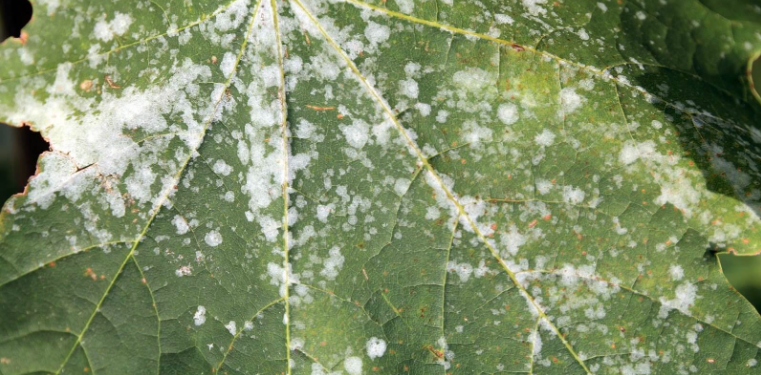||| FROM JULIA TURNEY for SAN JUAN MASTER GARDENERS |||
Our Big Leaf Maple leaves have been looking very gray this summer and many trees have leaves that are turning brown and dropping from the trees.
The culprit is powdery mildew. There are several types of fungi that attack only maples. Powdery mildew fungi thrive with cool, humid nights that stimulate spore production and warm (70 to 80 F), dry days that allow for spore spread. Fungal spores are spread by the wind. The fruiting body of the fungus can overwinter or live in buds infected in the previous season. The combination of stress from our dry summer and damage from fungi is causing the leaves to turn brown and drop.
There are fungicides that treat powdery mildew but they do best when used before symptoms develop and few are good at eradicating fungi. Many have to be used every 7 to 14 days. The San Juan County Extension WSU Master Gardener program does not recommend that homeowners spray trees over ten feet tall. Given the number and size of Big Leaf Maples in our County, treatment is not practical.
Big Leaf Maple trees should recover next year and as long as the trees are not subject to the same stress for a couple of years in a row, they will not die from the powdery mildew infestation. Additionally, there are so many affected trees and leaf litter, that treatment isn’t practical. Leaves can be collected and composted for other uses as the fungus is maple specific. Composting is a good option for managing falling leaves. The fungus feeds on live leaf tissue so it will not multiply on dead leaves and the spores will break down in the compost process.
For further reference Washington State University Hortsense website has general information on powdery mildew: http://hortsense.cahnrs.wsu.
The Washington State University Forestry Extension has information on native plants: https://forestry.wsu.edu/
San Juan County Extension WSU Master Gardener program office in Friday Harbor is available to provide answers to gardening and landscape questions. 360-370-7663 or https://extension.wsu.edu/
**If you are reading theOrcasonian for free, thank your fellow islanders. If you would like to support theOrcasonian CLICK HERE to set your modestly-priced, voluntary subscription. Otherwise, no worries; we’re happy to share with you.**








Thanks, Julia! I had been starting to research this, so it’s good to hear your good news for our favorite maple tree.
Thanks, Julia!